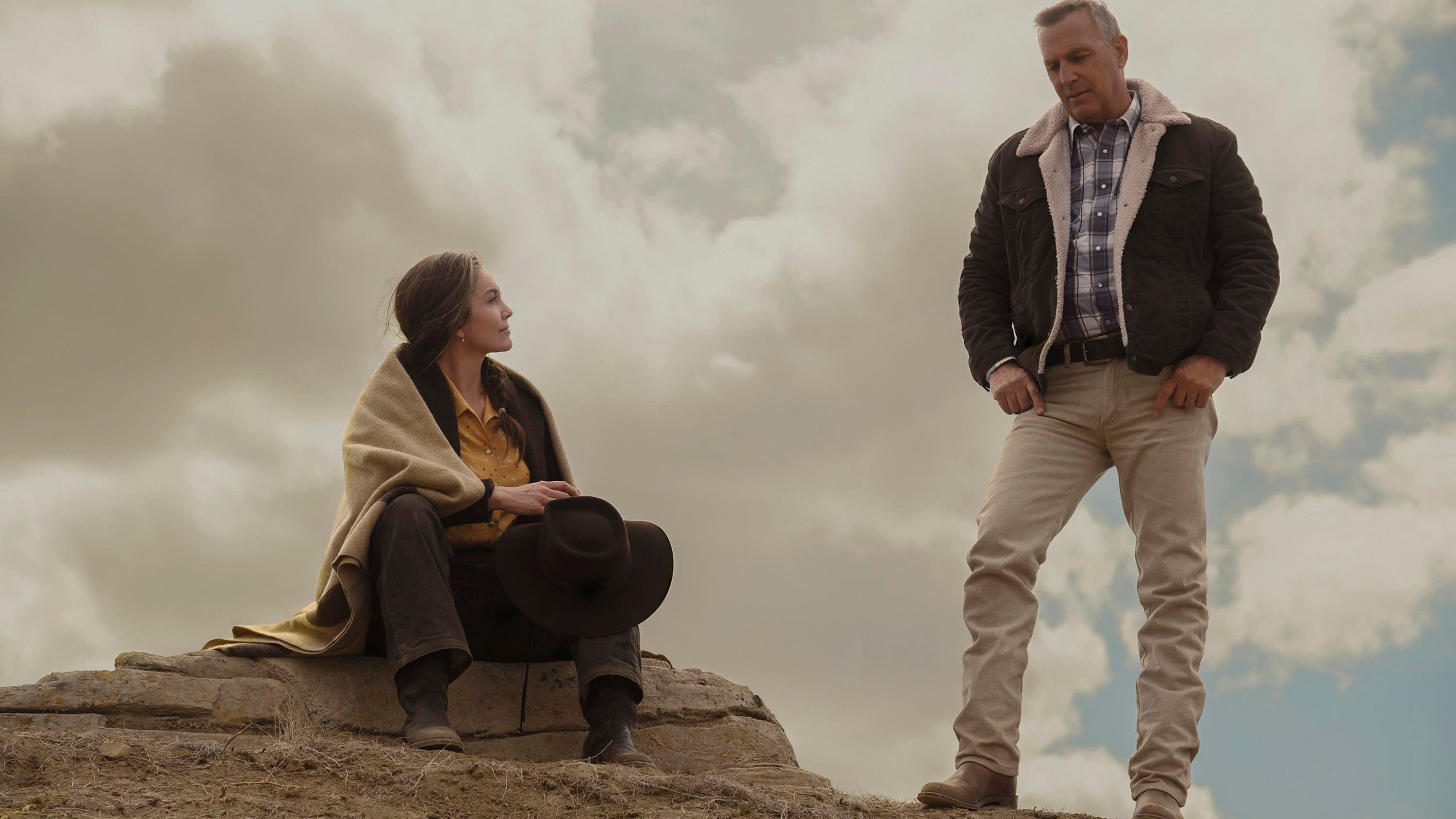Fifteen Christmases ago, the former Ralph Lauren windowdresser Thomas Bezucha landed a prime studio gig overseeing the lame-duck Sarah Jessica Parker vehicle The Family Stone. Clearly, family ties fascinate him, because he's still picking them over in this week's Let Him Go, a mostly elegant hybrid of Western and period thriller that enters into conversation with a work as totemic as The Searchers and doesn't entirely disgrace itself. Where the Ford movie sent an ageing cowboy to retrieve a kidnapped child, Bezucha's Fifties-set film - drawn from a Larry Watson novel - has a middle-aged couple saddle up, or rather load up their Chevy, and ride out to North Dakota to retrieve their grandson from the clutches of their sometime daughter-in-law's new, abusive husband. The couple are George and Margaret Blackledge (Kevin Costner and Diane Lane), and in something of a twist, it's the latter who's leading this rescue operation. George, a retired sheriff, has agreed to drive, but he seems impatient to get back, in part because his old lawman's instincts are telling him there's trouble up ahead. We sense danger when one of the couple's first points of contact with the extended Weboy family is revealed as Jeffrey Donovan, one of those smirking character actors contemporary movies traditionally cast as trouble. And there's another surprise awaiting everybody when we get to the Weboy family ranch: the shit-talking mother of this black-sheep clan, Blanche, is played at full throttle by Brighton's own Lesley Manville, late of such delicacies as Phantom Thread and Ordinary Love. You'll be as thrown as the Blackledges seem to be when she invites the pair in for a slap-up meal of pork chops with a bristling side of passive-aggression.
So it shapes up as a battle of the matriarchs, an unusual prospect in any film flirting with Western iconography. In one corner, Margaret, still grieving her son's death in a riding accident, and surely travelling this way to ensure she doesn't lose anybody else. In the other, Blanche maintains a whole stable's worth of strapping lads; as Donovan's Bill notes, with barely concealed threat in his voice, "we have numbers on you". There's a third mother, too, in Lorna (Kayli Carter, so excellent in Tamara Jenkins' Private Life), that former daughter-in-law, mutely accepting of what seems an especially sorry fate, very far from her own person. What's striking is that almost everybody else on screen is their own person; you can tell we're deep into awards season, because here is an American movie populated not by squealing pups but grown men and women. Lane and Costner make a quietly wonderful screen couple: even their silences are eloquent, speaking to two people who've long been happy with one another, and with the balance of power in their relationship. We might wonder whether George and Margaret have conceived of this rescue as one last, impromptu adventure together; Bezucha plays up the somewhat elegiac nature of this journey by shooting his leads at sundown, and dotting their progress with a melancholy Michael Giacchino score that recalls Lennie Niehaus's keening Unforgiven cues.
How interested Bezucha ultimately is in those silences may just be up for post-film debate, however. One theme Watson's source borrows from the Westerns of yore is the old civilisation-versus-savagery ringding (the cultivated, articulate Blackledges as the former, the insular, violent Weboys as the latter), and here Let Him Go heads into altogether rockier territory. One problem with The Family Stone was its jolting shifts between limp seasonal farce and heavy-handed disease-of-the-week melodrama. Bezucha's become a subtler director in the intervening years, smoothing the new film's progress from drama to action-thriller, but his latest still feels caught to some degree between sensitive character study and something more openly dramatic, between the subtexts his leads are nailing down like planks to a front porch and the kind of explosive action a studio can sell in trailers. By the final reel, the film has turned into a more conventional, man's-gotta-do kind of Western - not a bad one, all told, but after the filigreed character work of the first hour, Bezucha eventually defaults to nominative determinism, touting the idea the most decisive way to untangle those family ties is to have his characters pull guns out and start waving them around. Still, this is a handsome, neo-classical picture for a major studio to be putting out at the back end of 2020 - and who knows, maybe introducing firearms into the mix would have made The Family Stone a more compelling proposition way back when.
Let Him Go is now playing in selected cinemas, and available to rent via Prime Video.

No comments:
Post a Comment